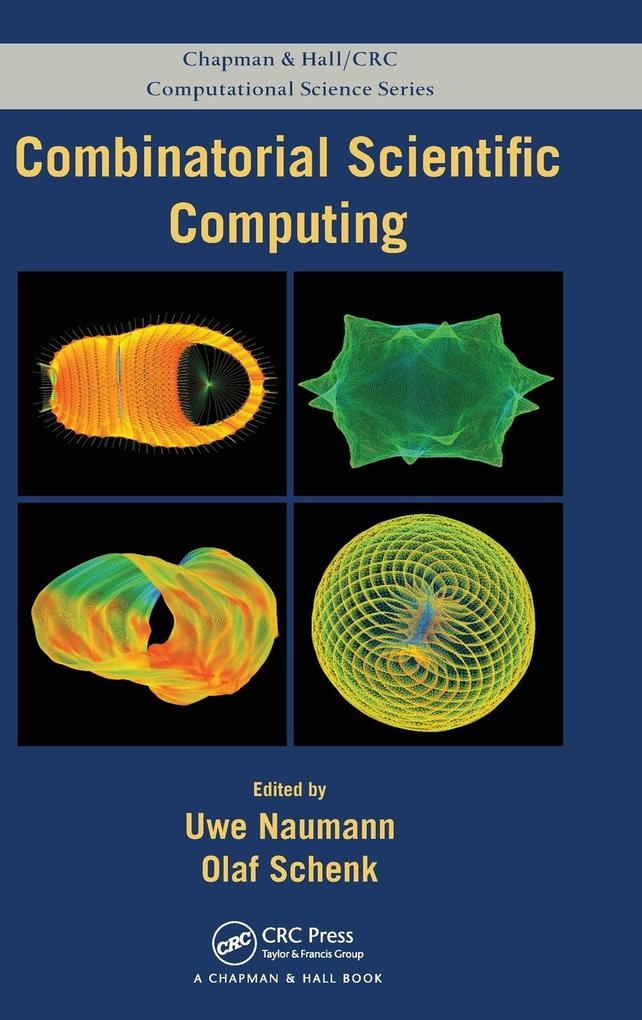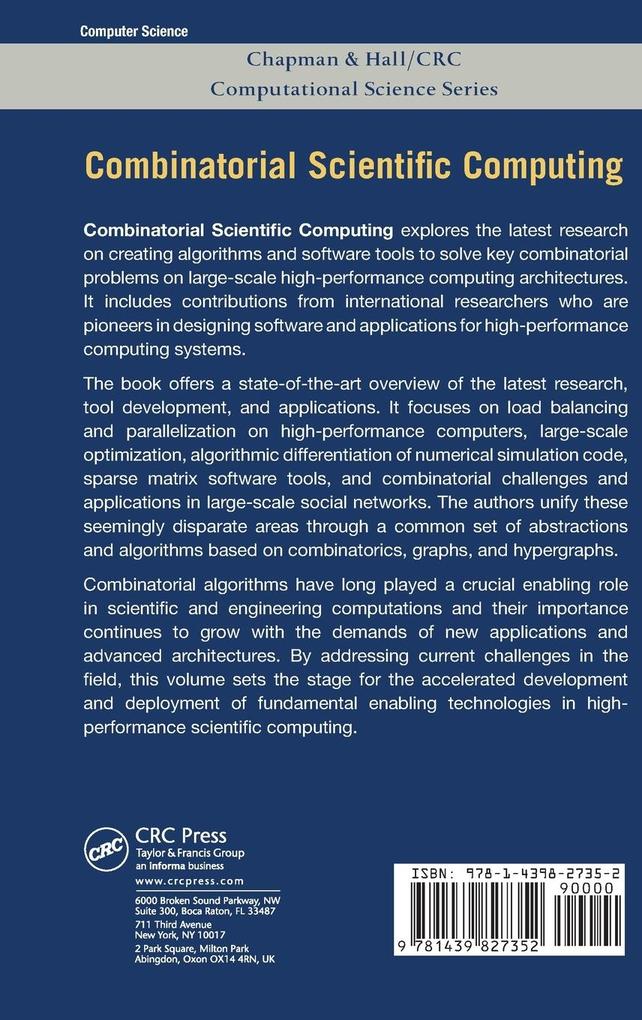
Zustellung: Mi, 16.07. - Mo, 21.07.
Versand in 2 Wochen
VersandkostenfreiBestellen & in Filiale abholen:
This is the first book to provide an overview of combinatorial scientific computing (CSC). Bringing together a diverse group of researchers, it addresses many of the challenges faced in high-performance computing (HPC) by setting the stage for accelerated development and deployment of fundamental enabling technologies in HPC. The text focuses on load balancing and parallelization on high-performance computers, large-scale optimization, automatic differentiation of numerical simulation code, and sparse matrix software tools. It also discusses key topics in CSC, important software tools, and special topics and applications.
Inhaltsverzeichnis
Combinatorial Scientific Computing: Past Successes, Current Opportunities, Future Challenges. Combinatorial Problems in Solving Linear Systems. Combinatorial Preconditioners. Scalable Hybrid Linear Solvers. Combinatorial Problems in Algorithmic Differentiation. Combinatorial Problems in OpenAD. Getting Started with ADOL-C. Algorithmic Differentiation and Nonlinear Optimization for an Inverse Medium Problem. Combinatorial Aspects/Algorithms in Computational Fluid Dynamics. Unstructured Mesh Generation. 3D Delaunay Mesh Generation. Two-Dimensional Approaches to Sparse Matrix Partitioning. Parallel Partitioning, Ordering, and Coloring in Scientific Computing. Scotch and PT-Scotch Graph Partitioning Software: An Overview. Massively Parallel Graph Partitioning: A Case in Human Bone Simulations. Algorithmic and Statistical Perspectives on Large-Scale Data Analysis. Computational Challenges in Emerging Combinatorial Scientific Computing Applications. Spectral Graph Theory. Algorithms for Visualizing Large Networks.
Produktdetails
Erscheinungsdatum
25. Januar 2012
Sprache
englisch
Seitenanzahl
600
Herausgegeben von
Uwe Naumann, Olaf Schenk
Verlag/Hersteller
Produktart
gebunden
Gewicht
957 g
Größe (L/B/H)
236/157/33 mm
ISBN
9781439827352
Entdecken Sie mehr
Bewertungen
0 Bewertungen
Es wurden noch keine Bewertungen abgegeben. Schreiben Sie die erste Bewertung zu "Combinatorial Scientific Computing" und helfen Sie damit anderen bei der Kaufentscheidung.










